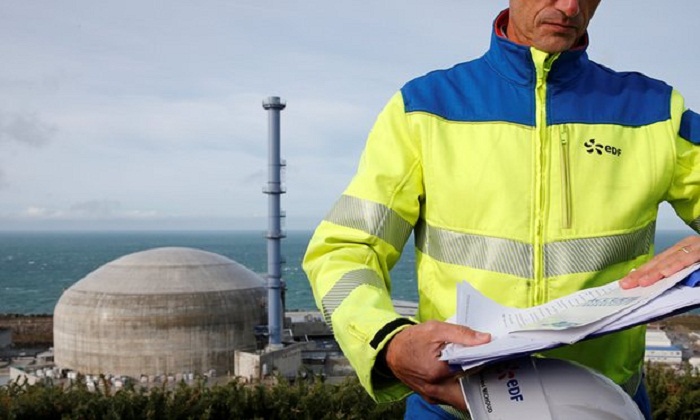The closures have seen Britain this week exporting electricity to France for the first time in four years.
Magnin said the state-owned EDF knew its reactor design for Hinkley had “no future” because it was too complicated and expensive but it was pushing ahead to save face for France.
Instead of backing new nuclear, the UK and France should capitalise on falling wind and solar power costs and help individuals and communities to build and run their own renewable energy projects, he said. Magnin founded an association of cities switching to green energy, joined the EDF board in 2014, and is now director of a renewable energy co-op in France.
“The most surprising [thing] for me is the attitude of the UK government which accepts the higher cost of electricity ... in a time where the costs of renewables is decreasing dramatically,” he said. “In 10 years [when Hinkley Point C is due to be completed], the cost of renewables will have fallen again a lot.”
Of the Hinkley C design, known as the European Pressurised Reactor (EPR), Magnin said: “A lot of people in EDF have known for a long time the EPR has no future – too sophisticated, too expensive – but they assume their commitments and try to save the face of France.”
The UK’s business department conceded in September that by the time Hinkley is operational the price of electricity guaranteed to EDF will be above the comparable costs for large scale solar and onshore windfarms. Officials argued that using renewables instead would cost more in grid upgrades and balancing the intermittent nature of wind and solar.
But in a comment article for the Guardian, Magnin said renewables would still be able to match new nuclear. “Renewable energies are becoming competitive with fossil fuels and new nuclear, such as Hinkley Point, where EDF will try to build the most expensive reactors in the world and provide electricity at an unprecedented cost,” he wrote.
On Wednesday the European commission is due to publish plans on how it will support an increasing amount of renewable energy on Europe’s grids, and how it will meet its climate change commitments under the Paris Agreement. Around seven or eight draft pieces of legislation are expected in the “winter package”, plus funding for cleaner energy, but green groups fear renewables will lose the priority they get on electricity grids.
Magnin said that the EU’s climate targets are used in France as a way to maintain a status quo which sees nuclear – a low-carbon power source – provide around three quarters of the country’s electricity. “Climate change issues are used as arguments to maintain the current system,” he said.
Wind and solar provide less than 4% of France’s wind and solar, but Magnin said the European commission and governments should support community-owned green energy projects to grow that share. Such an approach would overcome opposition to renewable power sources, and secure funding, he said.
More about:
















































